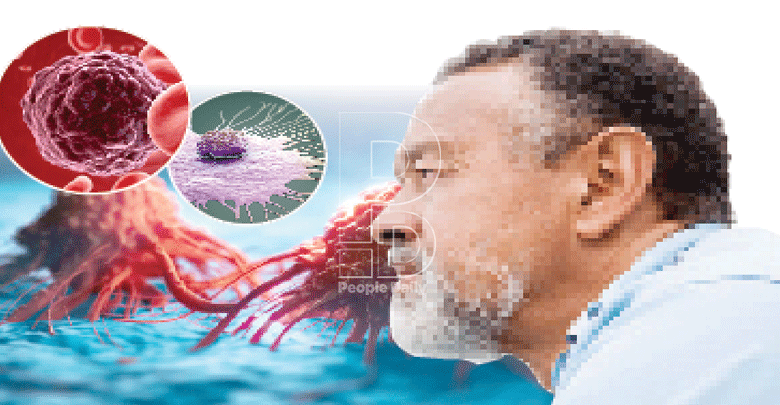Ten signs of cancer you should never ignore

While one of the best ways to fight the disease is to catch it in the early stages, when it’s more treatable, men are notorious for delaying doctors’ visits. It’s therefore, important to know your body and see a doctor about these or any unusual pains or other changes, writes Ann Wairimu.
1. Changes in your restroom habits
If it’s consistently difficult to urinate, or there’s blood in your urine or semen, or if you experience unexplained erectile dysfunction, see your doctor; these could be symptoms of prostate cancer.
Other signs to look out for include need to use the restroom all the time. Changes in your bowel habits, such as constipation or diarrhoea that won’t go away, matter too.
2. Testicular changes
Just as women should be familiar with how their breasts look and feel, men should pay attention to their testicles.
If you notice changes in size (to one or both), if they feel swollen or extra heavy, or if you feel a lump, these symptoms could indicate testicular cancer.
3. Chronic coughing
A cough that lasts three weeks or more—without other symptoms, such as a cold or allergies—could be an early symptom of lung cancer. Leukemia can also lead to bronchitis-like symptoms.
So, if your cough is different than your regular one and if it persists, or you cough up a little blood, consult a doctor.
Some lung cancer patients report chest pain that extends up into the shoulder or down the arm.
4. Sores or pain in your mouth
A cold sore that heals is probably nothing to worry about, nor is a toothache that goes away after a trip to the dentist.
But if you notice sores that don’t heal, pain that sticks around, white or red patches on the gums or tongue, and any swelling or numbness of the jaw, it could be a sign of some mouth cancers.
Men who smoke or chew tobacco have an increased risk of developing mouth cancer.
Therefore, smokers and those who chew tobacco need to be far more concerned with sores in their mouth that do not heal quickly, compared to non-smokers.
5. Blood in your stool or pee
These can be among the first signs of cancer of the bladder, kidneys, or colon.
It’s a good idea to see your doctor for any bleeding that’s not normal, even if you don’t have other symptoms.
Although you are more likely to have a problem that’s not cancer, such as haemorrhoids (enlarged and swollen veins (also called varicose) around the outside of the anus or in the lower rectum) or a urinary infection, it’s important to find and treat the cause
6. Frequent fevers or infections
If you are usually healthy, but notice yourself getting sick or feverish more frequently, it could be an early sign of leukaemia.
This blood cancer triggers the body to produce abnormal white blood cells, which weakens the body’s infection-fighting abilities. Be on the lookout for flu-like symptoms that don’t go away.
7. Changes in your skin
If you work long hours outside or have a history of blistering sunburns, check your skin more closely.
What you think are signs of hard work might actually be skin cancer. Look for unusual bleeding, scaling or sores that do not heal.
Other signs include warts as well as moles and freckles that change in colour, size or shape.
Bottom line: If you’ve got a strange spot on your skin, consult your dermatologist.
8. Indigestion or trouble swallowing.
A prolonged painful burning sensation in your throat or chest shouldn’t be ignored – even if you suspect it’s from eating spicy food.
Don’t think that regular indigestion or trouble swallowing is a normal part of aging either. It can be a sign of oesophageal, stomach or throat cancer.
9. Constant fatigue
Are you too tired to play with your children? Or hang out with the guys after work? Are you constantly tired no matter how much rest you get?
Don’t brush it off. Constant fatigue can be a sign of leukemia as well as some colon and stomach cancers.
10. Unexplained weight loss
Losing weight is the in thing, and for many, it’s a good thing. But if you haven’t changed your diet or exercise habits, it could mean that stress or a thyroid problem is taking a toll.
Losing five kilogrammes or more without trying isn’t normal. Although most unintended weight loss is not cancer, it’s one of the signs of cancer of the pancreas, stomach, or lungs.
Your doctor can find out more with blood tests and tools that make detailed pictures of the inside of your body, like a computerised tomography (CT Scan) or A positron emission tomography (PET scan).










